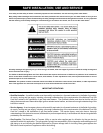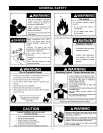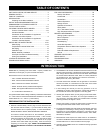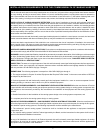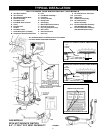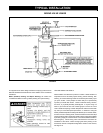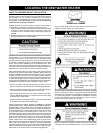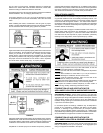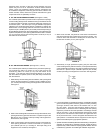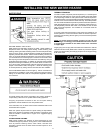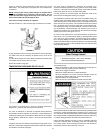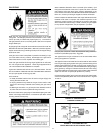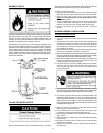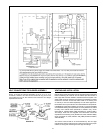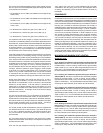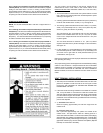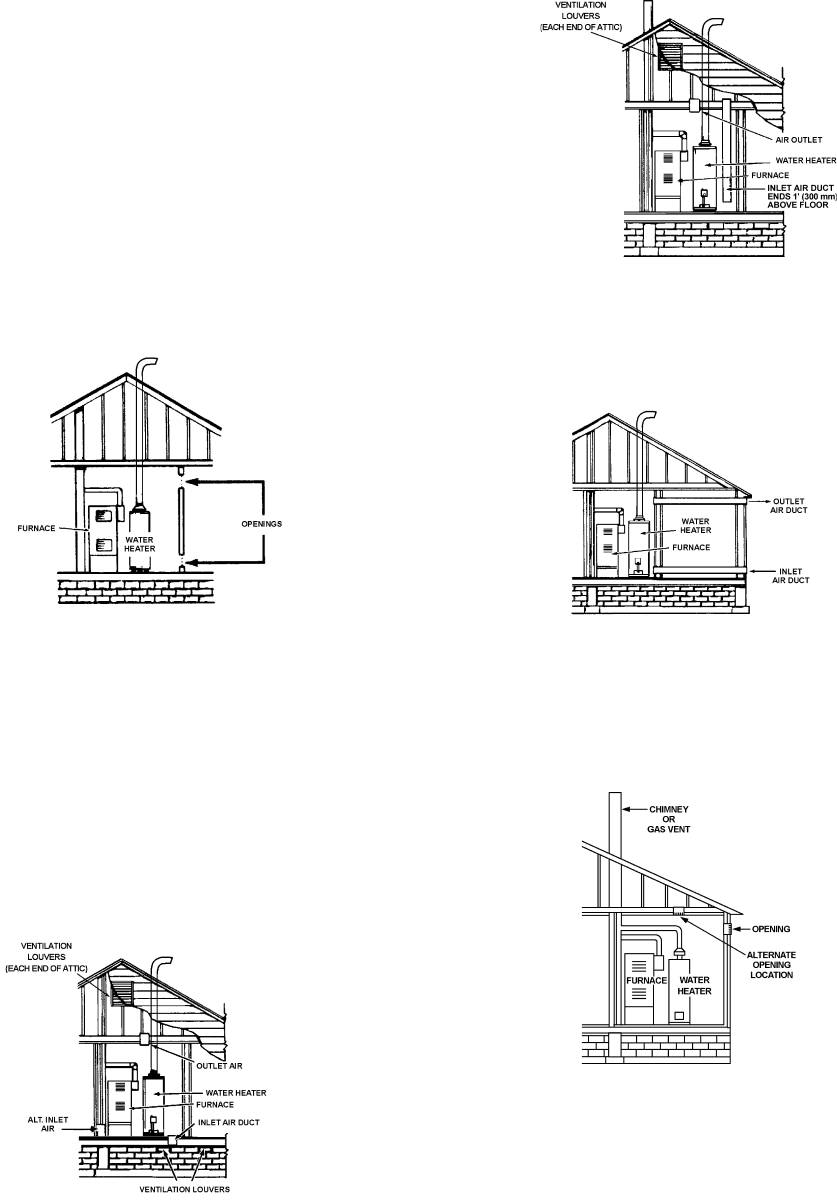
10
Chemical vapor corrosion of the fl ue, blower assembly and vent
system may occur if air for combustion contains certain chemical
vapors. Spray can propellants, cleaning solvents, refrigerator and
air conditioner refrigerants, swimming pool chemicals, calcium and
sodium chloride, waxes, bleach and process chemicals are typical
compounds which are potentially corrosive.
A. ALL AIR FROM INSIDE BUILDINGS: (See Figure 5 and 6)
The confi ned space shall be provided with two permanent openings
communicating directly with an additional room(s) of suffi cient volume
so that the combined volume of all spaces meets the criteria for an
unconfi ned space. The total input of all gas utilization equipment
installed in the combined space shall be considered in making this
determination. Each opening shall have a minimum free area of one
square inch per 1,000 Btu per hour (22 cm
2
/kW) of the total input rating of
all gas utilization equipment in the confi ned space, but not less than 100
square inches (645 cm
2
). One opening shall commence within 12 inches
(31 cm) of the top and one commencing within 12 inches (31 cm) of
the bottom of the enclosures.
FIGURE 6.
B. ALL AIR FROM OUTDOORS: (See Figures 7, 8 and 9)
The confi ned space shall be provided with two permanent openings,
one commencing within 12 inches (31 cm) of the top and one
commencing within 12 inches (31 cm) from the bottom of the
enclosure. The openings shall communicate directly, or by ducts,
with the outdoors or spaces (crawl or attic) that freely communicate
with the outdoors.
1. When directly communicating with the outdoors, each opening shall
have a minimum free area of 1 square inch per 4,000 Btu per hour
(5.5 cm
2
/kW) of total input rating of all equipment in the enclosure,
see Figure 7.
FIGURE 7.
2. When communicating with the outdoors through vertical ducts, each
opening shall have a minimum free area of 1 square inch per 4,000
Btu per hour (5.5 cm
2
/kW) of total input rating of all equipment in
the enclosure, see Figure 8.
3. When communicating with the outdoors through horizontal ducts,
each opening shall have a minimum free area of 1 square inch
per 2,000 Btu per hour (11 cm
2
/kW)) of total input rating of all
equipment in the enclosure, see Figure 9.
FIGURE 8.
4. When ducts are used, they shall be of the same cross-sectional
area as the free area of the openings to which they connect. The
minimum short side dimension of rectangular air ducts shall not
be less than 3 inches (7.6 cm), see Figure 9.
FIGURE 9.
5. Alternatively a single permanent opening may be used when
communicating directly with the outdoors, or with spaces that freely
communicate with the outdoors. The opening shall have a minimum
free area of 1 square inch per 3,000 BTU per hour (8.3 cm
2
/kW)
of total input rating of all equipment in enclosure. See Figure 9A.
FIGURE 9A.
6. Louvers and Grilles: In calculating free area, consideration shall be
given to the blocking effect of louvers, grilles or screens protecting
openings. Screens used shall not be smaller than 1/4 inch
(6.4 mm) mesh. If the free area through a design of louver or
grille is known, it should be used in calculating the size opening
required to provide the free area specifi ed. If the design and free
area is not known, it may be assumed that wood louvers will be
20-25 percent free area and metal louvers and grilles will have
60-75 percent free area. Louvers and grilles shall be fi xed in the
open position or interlocked with the equipment so that they are
opened automatically during equipment operation.
7. Special Conditions Created by Mechanical Exhausting or Fireplaces:
operation of exhaust fans, ventilation systems, clothes dryers or
fi replaces may create conditions requiring special attention to avoid
unsatisfactory operation of installed
gas utilization equipment.



